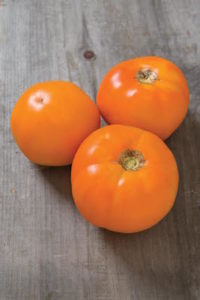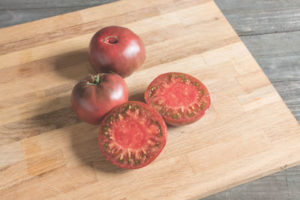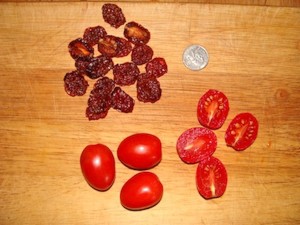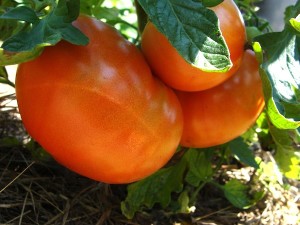Full sun. Bush Beefsteak is an open pollinated tomato variety producing early-mid season meaty, tasty, 8 oz. red fruits. 65 days
Determinate tomato plants have a specific time period for producing flowers that will then set fruit and ripen. Caging determinate types will help to keep the fruit off the ground to reduce pest nibbling. Determinate types are not suckered.



